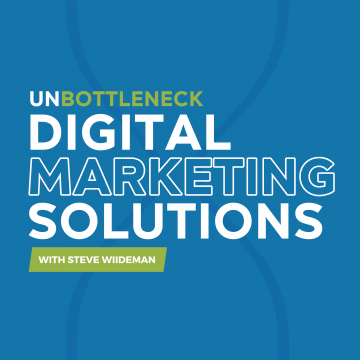Oh, how SEO has come a long way. In fact, it wasn’t that long ago that online marketers measured the success of their campaigns by how their pages ranked for targeted keywords and phrases.
So, if SEO is getting more sophisticated, perhaps even harder, then why has there been a resurgence in long tail keywords for example?
Keyword placement has definitely come a long way in recent years as well. In the primitive days of SEO, black hat techniques such as using colored text to blend with the background, and positioning keywords behind an image, were the norm. All that changed from as early as 2005, when invisible text techniques were detected by clever search bots.
And whilst there’s been a major shift from old-school keyword placement, next year could see the return of keyword rankings giving sagging SEO campaigns a much-needed boost. Coming from a perspective you wouldn’t expect. Here’s why…
1. Google Still Calculates Keywords
When Google determines the ranking of your pages, it does it by analyzing huge chunks of text which tells the search engine who you are, what you do, and how good you are at doing it.
This of course involves analyzing any words that you include on your pages that could be deemed as ‘relevant’ to people searching for content within your niche. Whilst online marketers might not refer to these as keywords anymore, they essentially are.
Relevancy Is Key
In fact, Google will still determine the value and the intent of your website by the words and phrases that you use. No, this doesn’t mean keyword stuffing will have any bearing on your rankings, but what you say on your pages will often correlate with your position on the SERP.
Keyword stuffing was a practice where you would include high-impact keywords as many times as you could throughout your text, and it’s certainly frowned upon by The Big G.
Ask yourself this: are you using the right words and phrases in meta-tags, title tags and the like? Remember – search engines will break down your pages into different key areas, with headers and meta information being of prime importance, so you’ll want to include accurate descriptions of your business here to increase your chances of high rankings in the relevant area.
Focus On Title, Headers And Meta
The key here is to include corresponding information in your text that resonates with your readers and include the relevant keywords in the title, the headers and the meta description that Google can pick up when crawling your website.
That’s why new, fresh, and original content will keep traffic to your sites ticking over nicely – especially if you have lots of it (businesses who have 401-1000 pages get 6 times more leads than those with only 51-100 pages). The golden rule still applies here: don’t write for search bots, but for your customers.
2. What About Long Tail Keywords?
According to Entrepreneur, if old-style keywords matter less when it comes to search, long tail keywords matter more . Introducing long tail keywords to your pages could certainly pay off in the long run, even if you believe this SEO practice is outdated. You see, post-Hummingbird, these keyword phrases are still extremely relevant. It’s almost like they never went away.
Research has shown that the more keywords that are used in a search phrase, the further the user is along the purchasing cycle. You’ll want your content to reflect this – especially as search users are likely to be making a purchase at this point.
Targeting long tails and appearing at the top of the SERP for these queries is a win-win for your company and the client – especially as keyword concepts have become more important.
More Immediate Impact
Using long tails has always been cost-effective and relatively easy. If you’ve managed to go all these years without using them, now’s a better time than any to start. If you’re still stuck, use a long tail keyword generator tool, which will populate some ideas based on your business or niche.
Perfecting the right keywords to use within your pages might take a bit of practice, but it should pay off in the end.
Remember – you’ll attract less traffic with these than you would do regular keywords, but the traffic you do receive will be more focused and valuable to your business AND the chances to rank better are higher.
3. Ensuring Your Content Targets Semantic Searches
Keywords could also show some relevancy when it comes to Google’s semantic search, which was introduced in 2013. Here’s when the search giant decided to determine meaning from search queries in order to provide its users with a much better online experience.
Semantic search uses sophisticated technology to ascertain exactly what a user is searching for within any given niche – even if the words they use aren’t directly related to the given field.
THIS looks like the future of SEO.
How Does This Relate To Your Website?
Well, you’ll want your pages to target these semantic searches in the best possible way. For example, you’ll want your content to show up on the SERP if someone enters an ambiguous search term – even if you’re not targeted that exact keyword or phrase.
If you own a restaurant in the Big Apple, let’s take someone searching for cheap food in New York. This could mean several things; the user might be looking for supermarkets in the city that sell groceries, OR more likely, they’re hunting for cheap restaurants.
Google will give prominence to the latter, so you’ll want to appear in their search listings for phrases like this. Targeting content that involves ‘food’ and ‘cheap’ on your site could help you here, even if you’ve focused on words such as ‘dinner’, or ‘meals’, or phrases like ‘best restaurants in New York’ in the past.
It’s all about thinking outside the box and targeting keywords that consumers are really looking for.
Conclusion
So, believe it or not, keywords are still important when it comes to SEO – even if older techniques have been put out to pasture. To answer the question “Are keywords STILL relevant for SEO?”, I can certainly say “Yes, they are”, albeit in a slightly different context.
Google wants to find the INTENT and meaning behind a consumer’s search query, and whilst the language being used in these searches is still relevant, you’ll want to target the words you use to reflect semantic searches.
Your pages shouldn’t focus on any one keyword or phrase in particular, but include content that is valuable and relevant to your niche – especially since Google becomes increasingly responsive to semantic queries.




